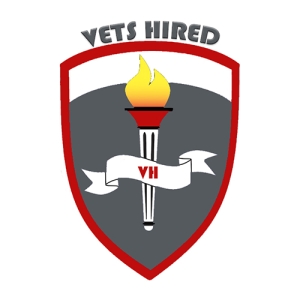Finding a Career after Military Service
Transitioning from military service to civilian life marks a significant milestone for veterans, signalling the beginning of a new chapter filled with opportunities and challenges. One of the most pressing concerns for veterans during this transition is finding a rewarding and fulfilling career path that utilizes their unique skills, experiences, and values. In this article, we explore strategies and resources to help veterans navigate the process of finding a career after military service and successfully transition to civilian employment.
Reflecting on Skills and Interests:
The first step in finding a career after military service is to reflect on one’s skills, interests, and career goals. Veterans possess a diverse range of skills acquired during their military service, including leadership, teamwork, problem-solving, and technical expertise. Identifying transferable skills and areas of interest can help veterans narrow down their career options and focus on industries or roles that align with their strengths and passions.
Exploring Career Pathways:
With a clear understanding of their skills and interests, veterans can begin exploring various career pathways and industries that offer opportunities for professional growth and advancement. Whether it’s pursuing a career in healthcare, technology, law enforcement, or entrepreneurship, veterans have a wealth of options to choose from based on their individual interests and aspirations. Networking with fellow veterans, attending career fairs, and utilizing online resources such as job boards and career counseling services can provide valuable insights and guidance in exploring different career paths.
Utilizing Military Transition Programs:
Many military transition programs and resources are available to help veterans navigate the transition to civilian employment successfully. Programs such as the Transition Assistance Program (TAP) provide workshops, counseling, and resources to help veterans develop job search skills, create resumes, and prepare for interviews. Additionally, organizations like Hire Heroes USA, Veterans Employment Center (VEC), and American Corporate Partners (ACP) offer personalized career coaching, mentorship, and job placement assistance to veterans transitioning to civilian careers.
Leveraging Military Experience:
One of the most significant advantages veterans have in the civilian job market is their military experience, which often translates to valuable skills and qualities highly sought after by employers. Veterans can leverage their leadership experience, adaptability, discipline, and ability to perform under pressure to stand out in job interviews and demonstrate their value to potential employers. Highlighting military achievements, awards, and certifications on resumes and during interviews can help veterans effectively communicate their qualifications and experiences to civilian employers.
Continuing Education and Training:
In some cases, veterans may need to pursue additional education or training to qualify for their desired career path or industry. Fortunately, veterans have access to a wide range of education benefits, including the GI Bill, tuition assistance programs, and scholarships, to help cover the costs of education and training. Whether it’s earning a degree, obtaining professional certifications, or participating in vocational training programs, investing in continued education can open up new opportunities and enhance career prospects for veterans.
Conclusion:
Finding a career after military service is a significant milestone in the transition to civilian life, requiring careful planning, reflection, and perseverance. By leveraging their skills, experiences, and resources available to them, veterans can successfully navigate the job search process and embark on a rewarding and fulfilling career path in civilian employment. With determination, resilience, and support from fellow veterans and community organizations, veterans can thrive in their post-military careers and continue to make valuable contributions to society.



